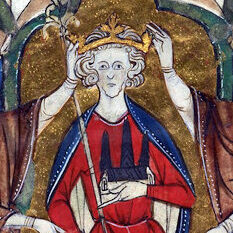In 1258 Henry III and his barons set out to reform the realm under a constitution known as the Provisions of Oxford. Five years later their partnership was in ruins and each side turned to King Louis IX of France to settle the issue of these Provisions once and for all. Making the case for Henry was his chancellor Walter Merton. The barons, he declared, had usurped the king’s authority and wreaked havoc throughout the land. Merton had been brief and to the point, and for his efforts was granted the privilege of taking ‘one or two deer’ from any forest in England for the rest of his life. Speaking for the barons was Thomas Cantilupe, future saint and bishop of Hereford. His argument was six times longer and read like an indictment of the king. He did this, this and this, all in violation of Magna Carta. On this day of 23 January in 1264, Louis delivered his ruling. Without saying why, he quashed the Provisions of Oxford. Null, void and no law. Simon de Montfort and his followers had sworn to abide by his award, now they set out to settle the issue by war and defeated the royalists at the battle of Lewes. The Provisions again became the law of the land, Henry was a captive of his own government and Merton was out of a job. He took the time off to found a college in Oxford, reputedly the oldest one there and the one that bears his name today. Since he later became the bishop of Rochester, this relief above the gatehouse entrance of the college shows him dressed as one, although what John the Baptist and the unicorn are doing there is anyone’s guess.
Merton and the unicorn


Lol I am scratching my head about the unicorn😀
Wisdom revealed ig @
unicorn_virtue